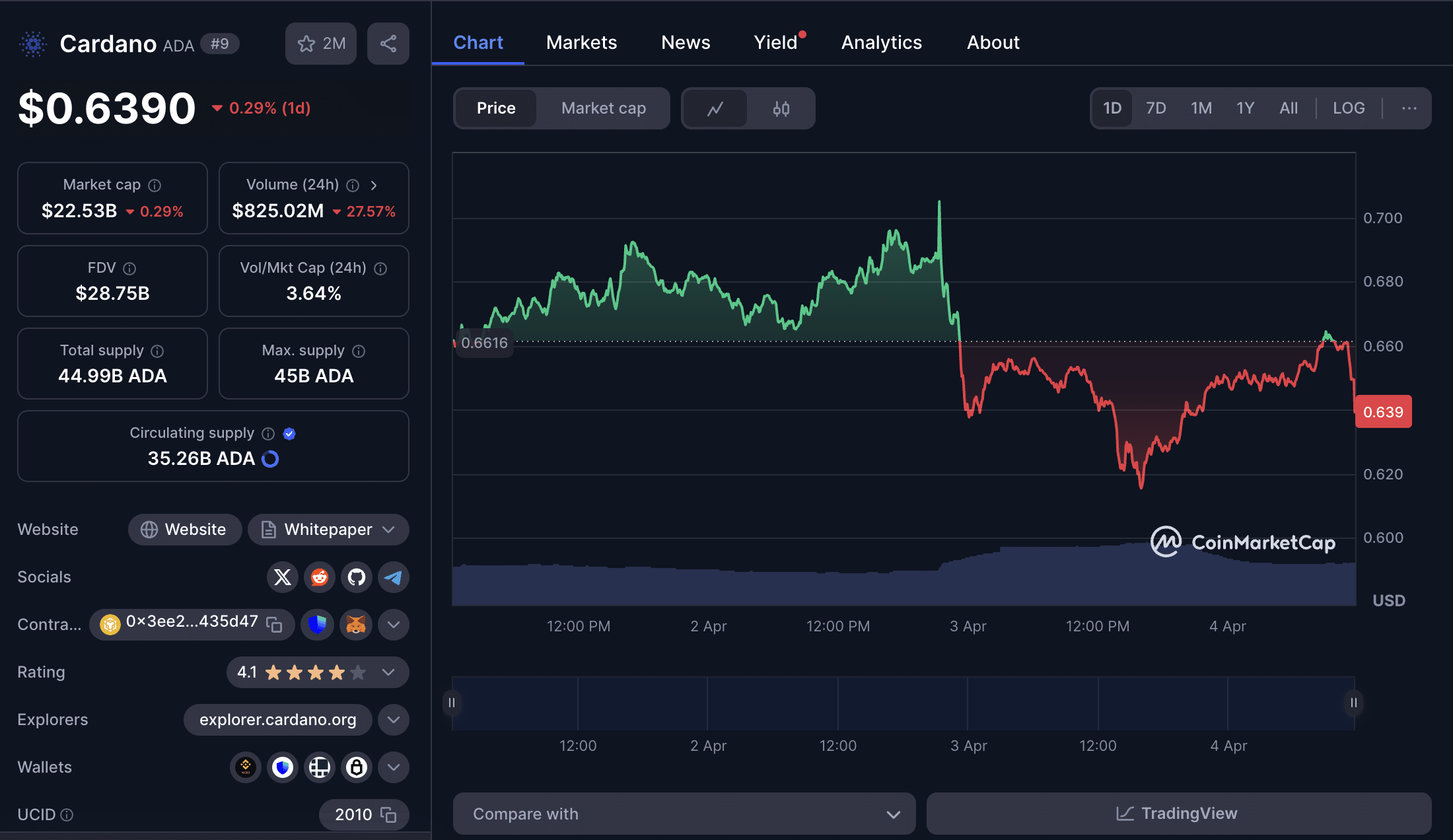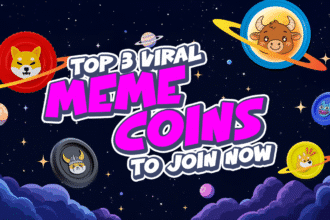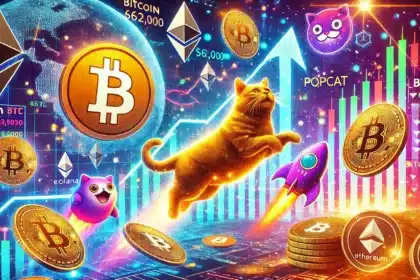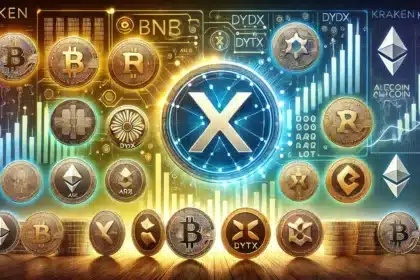According to reports, Cardano co-founder, Charles Hoskinson is investing in two Web3 platforms; Book.io and Stuff.io, focused on revolutionizing the way digital media is owned and accessed. With this investment, Hoskinson is supporting platforms that push back against centralized digital rights management (DRM), which often limits consumer rights over purchased content.
Book.io and Stuff.io aim to restore true ownership in the digital economy by leveraging blockchain’s decentralized architecture.
Blockchain Meets Publishing: Inside the Vision of Book.io and Stuff.io
Hoskinson’s investment was made through the Hoskinson Family Office, LLC (HFO), and it reflects his long-standing advocacy for open access and decentralization. His vision aligns with the mission of Book.io; a platform enabling the purchase of eBooks and audiobooks as Decentralized Encrypted Assets (DEAs). These tokenized books are permanently stored on the blockchain and remain accessible regardless of external platforms or restrictions.
Stuff.io, meanwhile, expands that vision by offering a similar ownership model for other forms of digital media, including music, films, podcasts, and video content. By allowing both creators and consumers to reclaim control over their content, Stuff.io promises to transform not only access but also distribution and resale of digital media.

In a post on X, Hoskinson emphasized the core motivation behind this move:
“Ownership is a fundamental right, yet in the digital world, we have allowed it to slip away. When you buy a physical book, it’s yours forever. Stuff.io and Book.io are restoring digital property rights, and I’m excited to be part of this movement.”
A New Standard for Digital Media Rights
Book.io, already a recognized name in Web3 publishing, has successfully launched multiple bestsellers on-chain. Their Decentralized Encrypted Asset model has gained traction among creators and consumers seeking alternatives to restrictive DRM policies.
Stuff.io, which is currently expanding its media formats and publishing roadmap, utilizes blockchain to enable verifiable, transferable, and censorship-resistant ownership. Users can now buy digital films, music, or podcasts with the same permanence and freedom as a paperback.
Joshua Stone, CEO of Book.io and Stuff.io, stated:
“This investment marks a crucial moment for us. Charles is not just a visionary, but a true pioneer, and having his support strengthens our mission to reshape digital media from the ground up.”
Expert Insight: Industry Analysts Welcome Hoskinson’s Move
The rise of platforms like Book.io and Stuff.io has caught the attention of the broader Web3 community, with many analysts noting a growing appetite for decentralized content ownership. According to a Cointelegraph report, there has been increased institutional interest in blockchain-based intellectual property and NFT-driven media distribution, especially in sectors like publishing, music, and digital collectibles.
Web3 researchers and DeFi analysts have consistently pointed out that the demand for verifiable, censorship-resistant digital ownership is becoming a central theme in blockchain innovation. These trends are visible in the growing number of startups building tokenized libraries, decentralized media platforms, and permissionless creator marketplaces.
Hoskinson’s investment is viewed as timely, reinforcing Cardano’s role in the broader decentralization movement and spotlighting blockchain’s expanding utility beyond finance and smart contracts. Media infrastructure, powered by verifiable ownership models, is increasingly being discussed in blockchain forums and developer communities as the next frontier of real-world utility.
Market Impact: Strengthening Cardano’s Ecosystem Narrative
While the investment does not directly involve Cardano’s ADA token, it amplifies the blockchain’s reputation for innovation and decentralization. By supporting projects that emphasize user sovereignty, Hoskinson reinforces the core values that underpin Cardano’s roadmap.

As of April 4, 2025, ADA trades around $0.63, representing a 29% drop from last month. Yet, its long-term positioning as a governance-driven, scalable blockchain remains unchanged.
Conclusion
Charles Hoskinson’s investment in Book.io and Stuff.io is more than just financial backing, it marks a philosophical alignment with the growing movement toward restoring digital ownership in a decentralized world. By backing platforms that prioritize transparency, permanence, and freedom from centralized gatekeepers, Hoskinson is once again staking his reputation on blockchain’s power to reshape outdated industries.
This development also represents a shift in how media can be stored, accessed, and monetized in Web3. As other influential figures and institutions follow suit, decentralized media may soon move from the margins to the mainstream, bringing blockchain closer to everyday utility than ever before.
Follow us on Twitter and LinkedIn, and join our Telegram channel.
FAQs
What is Book.io, and what does it offer?
Book.io is a decentralized publishing platform that allows users to own eBooks and audiobooks as encrypted blockchain assets, granting permanent access and transferability.
How does Stuff.io differ from Book.io?
While Book.io focuses on literary content, Stuff.io extends blockchain ownership models to music, video, film, and other forms of digital media.
Why did Charles Hoskinson invest in these platforms?
Hoskinson believes in restoring true ownership of digital content through blockchain. He sees Book.io and Stuff.io as pioneers in this movement.
What does this mean for Cardano and the broader crypto space?
Though not directly tied to Cardano’s ADA, the investment supports Web3 principles that align with Cardano’s long-term mission, signaling increased blockchain utility beyond finance.
Glossary
Decentralized Encrypted Assets (DEAs): Tokenized digital books or media stored on-chain, allowing unrestricted ownership and access.
Digital Rights Management (DRM): Technologies used by publishers and platforms to control how digital content is accessed and shared.
Strategic Reserve (Crypto): A sovereign-held pool of digital assets maintained for national interest, investment, or monetary diversification.
Web3 Publishing: The use of decentralized technologies like blockchain to distribute, monetize, and secure ownership of written or multimedia content.





























